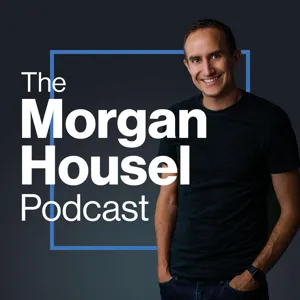Podcast Summary
Focusing on the present and future in investing: Investors should maintain a relentless focus on the present while keeping an eye on the future, as both short-term and long-term aspects are crucial to successful investing.
Both the short term and long term are crucial aspects of successful investing, and they are not mutually exclusive. Markel's CEO, Tom Gayner, emphasizes the importance of focusing on the present moment, as well as the future, by stating that the two most important time periods in life are forever and right now. This concept can be applied to various investing strategies, including venture capital. While venture capital may involve companies with limited cash reserves and a short-term focus on survival, the long-term value of these companies is created through growth and compound interest. Therefore, investors should maintain a relentless focus on the present while keeping an eye on the future.
Managing the present for long-term success: Effectively managing short-term needs helps reach long-term goals. Delaying gratification, like in the marshmallow test, applies to investing and life. Cash can be a tool for managing present needs and focusing on future objectives.
Effective management of the short term is crucial for achieving long-term goals. This concept was illustrated in the famous marshmallow test, where children who delayed gratification by distracting themselves were able to wait for a greater reward. This principle applies to long-term investing and thinking as well. While it's important to consider the long run, it's equally important to manage the present effectively to ensure that we can reach our long-term objectives. Having a significant amount of cash, as some may view it as excessive, can be a wise decision if it allows us to effectively manage our short-term financial needs and stay focused on our long-term goals. Ultimately, the two most important time periods are forever and right now, and effectively managing the present can help us reach the future we desire.
Considering the opportunity cost of holding cash vs. investing in stocks: Long-term stock investment provides higher returns than cash, but holding cash allows flexibility to weather market downturns. Companies maintain cash reserves for long-term growth and financial stability.
While it's important to consider the opportunity cost of holding cash instead of investing in stocks for the long term, it's equally crucial to consider the potential losses that could result from being forced to sell stocks during market downturns. The ability to hold stocks for the long term and weather short-term volatility is essential for earning high long-term returns. Companies, including tech giants like Microsoft, Google, Facebook, and Apple, follow this approach by maintaining large cash reserves, even if they earn little to no interest. This financial conservatism provides them with the flexibility and endurance to withstand economic downturns and focus on their long-term growth strategies.
The importance of balancing short-term and long-term strategies: Balancing short-term improvements and long-term planning can lead to successful business outcomes. Neglecting the short term can result in costly mistakes, but long-term thinking should not be an afterthought. Prioritize both for optimal results.
While long-term thinking is important, neglecting the short term can lead to costly mistakes. Economist Tyler Cowen noted that some companies have made significant errors by focusing too much on long-term synergies that failed to materialize. Instead, short-term improvements can pave the way for successful long-term plans. Long-term thinking should not be seen as an afterthought but rather as the result of carefully managing the short term. Companies and investors who prioritize both the short and long term can reap significant benefits. The Rundown podcast by Public.com provides valuable insights into the markets, helping listeners stay informed about short-term trends and developments that can impact long-term strategies. Remember, the long term is not an alternative to the short term but rather the result of effectively managing it.

